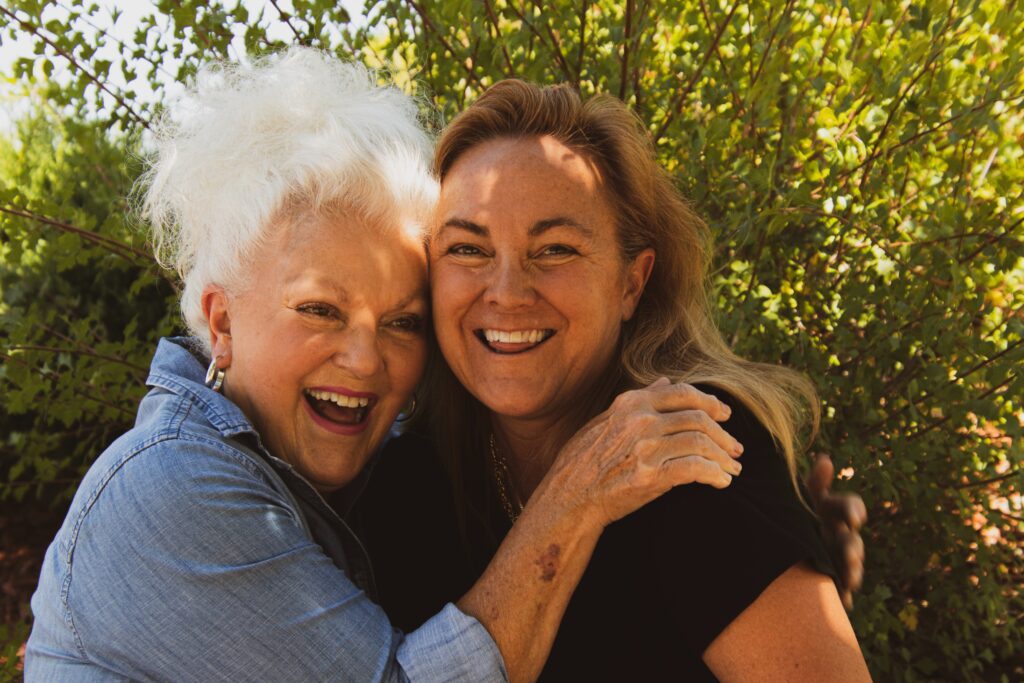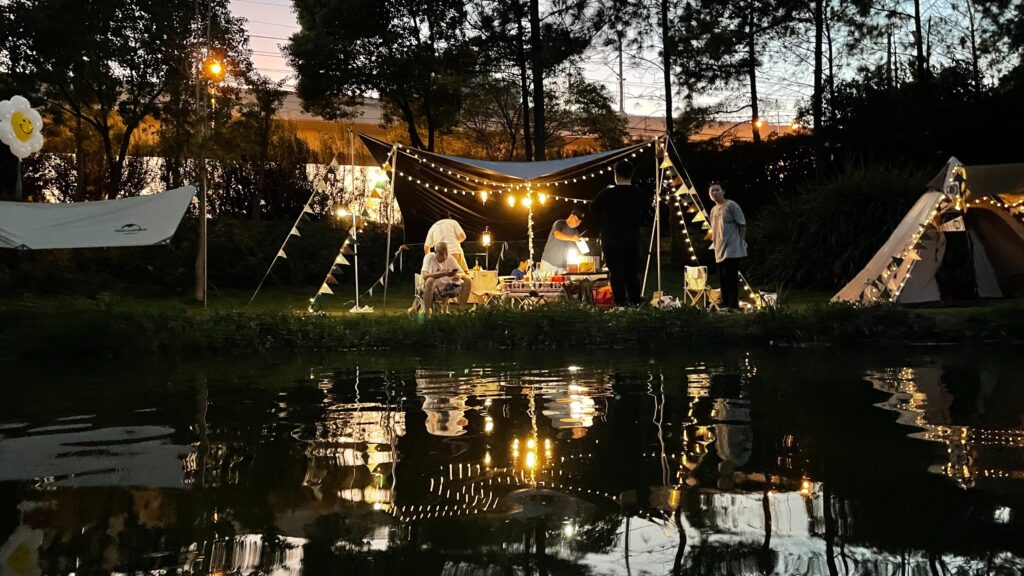It’s my birthday this week!
I consider myself to be fairly fit and active (joint problems aside) and this week I will be celebrating 68 years. Actually sometimes the celebrating goes on for well over a week. Can you can relate?
Generally this is the time of year when I reflect on the past and think about what I have yet to accomplish in the coming years.
This year the question that is top of mind is:
- If I have a choice, how long would I like to live?
- And
- Am I living in a way that will get me to my chosen age?
A friend of mine used to count the number of good summers he might have to look forward to for things like water skiing, biking, beach dinners and traveling. My number of good summers is dwindling.
Longevity and life expectancy
Longevity and life expectancy are terms that are sometimes used interchangeably. They are, however, not the same.
Where longevity refers to a long life, life expectancy uses standard formulas to predict the life expectancy of an individual from birth.
Studies have shown that the two major factors of longevity are genetics and lifestyle choices. Fortunately for me I have some good family genes. But good genes are no guarantee and really only account for about 25% of longevity.
There are a significant number of factors involved in estimating a person’s life expectancy. Some of these include gender, access to health care, financial status, education, nutrition and exercise, and rural or urban life. You can see how the country you were born in, and live in, can impact your life expectancy.
Global life expectancy is currently 72 years. According to the Canada Protection Plan, life expectancy for women in Canada is 83.9 years and 79.7 years for men. This varies by province and territory for both men and women and is amongst the highest in the world.
People are living longer each year but this doesn’t mean we are prepared for the additional time.
“ many describe it as a ‘silver tsunami’ or ‘demographic time bomb’.” World Economic Forum
Longevity literacy is a concept proposed by the Longevity Economy, a project that is a part of the World Economic Forum. The idea is that people are empowered through knowledge to prepare themselves to live long and healthy lives.
Had we known about this so many years ago, those of us who are now in our later years might have benefited from this framework Maybe some of you did know.

Live a quality life
Longevity is about the duration of life, which doesn’t necessarily mean quality of life or a life well lived.
Would you only choose to live a long life if it met your standard of a quality life? This is where lifestyle comes in to the equation.
If you want to have longevity and live a long life there are certain lifestyle choices commonly agreed upon that will increase your chances of living well into your eighties or nineties.
Lifestyle choices considered foundational by all researchers include:
- eating a healthy balanced diet (generally a Mediterranean style)
- not smoking
- exercising or being active every day
- engaging in social activities
Would you choose to live another 30, 40 or even 50 years if you could still meet friends at a park and go for a walk while having a stimulating conversation?
What if your living arrangement wasn’t an institution style ‘care home’ but something more like a community?
How long will I live?
Thinking about how long I might want to live, I thought I should put things into perspective and look at my personal life expectancy. I went on line and answered a few life expectancy quizzes.
This is a predicted life expectancy based on your current health status often used by insurance companies. According to the four questionnaires I completed I will surpass the national average and can expect to live to be somewhere between 89 and 98 years .
Most of the questions were simple lifestyle questions (smoking, alcohol, exercise, weight, nutrition) along with family history. One quiz (Living to100) was much more in-depth and that’s the one where my predicted life expectancy is the highest. Maybe if I had lied about how often I floss my teeth I might have met the Blue Zone standard.

Blue Zones
Blue zones are five identified parts of the world where people routinely live beyond 100 years. Within these areas researchers have uncovered commonalities believed to contribute to the inhabitants living such long lives.
- Move naturally – doing daily activities that require movement (like gardening) versus gym exercise or weight lifting
- Purpose – having a daily focus
- Stress management – like meditation
- 80% rule -stop eating when 80% full
- Eat mostly a plant diet
- Moderate regular alcohol – wine in particular
- Family first – focusing on intergenerational family
- Right tribe – associating with like minded people and supporting each other
There are current and proposed Blue Zone partnership projects in communities throughout the United States. These are systems level collaborative projects that aim to transform communities by improving the health and economic well being.
In 2018 the first Blue Zone population health improvement project in Canada was established in Airdrie, Alberta.
Interestingly, neither the oldest living man or woman lives in a blue zone, but their lifestyles are in alignment with blue zone standards.
Currently the oldest living man is Juan Vicente Perez (Venezuela) born May 27, 1909. María Branyas Morera, who lives in Spain, recently claimed the title of the oldest living woman in the world. Maria was born March 4, 1907 and now is only a matter of weeks away from her 116th birthday.
Does society value ‘old’ age?
I conducted a survey and discovered that only one person thought they might want to live to be 100. It was a small group, with an age range from mid-twenties to sixties, but the results made me wonder why so few would choose to live long lives. @cheryloutloud
Could it be that people don’t want to become ’old’ because our society doesn’t value age?
“This pandemic has revealed that older people are the forgotten ones of our society,”
María Branyas Morera
Health care leaders have been calling for reforms to elder care for years. Canadian seniors, particularly those living in care homes across the country, sustained the largest death toll during the covid-19 pandemic.
Gaps in available health care for seniors has become so starkly apparent they can no longer be ignored. The type of care we have become accustomed to offering seniors in Canada is certainly not what I want for my mother.
Recommendations for improvements have been put forward to various levels of government and recent changes to long term care in BC might mean things will be better in the coming years. But what if I don’t want to live in a building with 100 of my fellow seniors with four hours of direct care within a 24 hour period.
I am certain change will come, but significant change can be a slow process. Thinking of my mother and the number of good summers in my future though, change likely won’t come soon enough.
I need to look for alternatives.
Action – personal and societal
After some birthday week reflection, joining the centenarian club isn’t going to be enough for me. If I do live another 30 years what do I need to do now so those years will be quality years?
A few years ago some of the women in my golf group joked about buying a house together so we could stay out of a care home. Equally as important, we want to have regular happy hour. It was our idea of a collaborative housing situation.
Between the six of us we covered day to day healthcare, accounting, gardening, and cooking pretty well . We all agreed that we would still need help with some heavy lifting and mechanical issues but no biggie. Our lively discussion that afternoon (on the sunny deck, wine glass in hand) came short of fleshing out the legal issues associated with one of us dying or who might get the bigger bedroom with the ensuite.
It was a good concept though and one that has been realized by a group of women in Ontario. These Golden Girls have imagined “a house filled with friends.” That sounds pretty nice to me.
Cohousing is not a new idea as far as community living goes, but it is relatively uncommon in our North American culture.
Historically there are certain societies and cultures that do take care of their own. Today, Asian and Indigenous families still do to an extent.
Until 2022 the Canadian Cohousing Network helped to empower a change in the way seniors were viewed, and housed. Although the society has been dissolved there is continuing community work. Maybe you can see if there is something available for your city.
We have opportunities to improve not only our own lifestyles but also the communities and society we live in.
And so….
Did you take the life expectancy quiz?
Yes, I have concluded that I do want to have longevity but only if it comes with my definition of quality.
Good nutrition, regular physical activity, and socialization will all contribute to healthy aging. And along with some good genes there is a good chance of me reaching a predicted age of 98.
Of course I don’t know what physical condition I will be in years from now but hopefully it will be a pain free, stress free life. Will I develop dementia? Where will I live? Will I require full-time caregivers or support workers?
The bigger question, regardless of my physical and mental condition, is will I be able to afford to live a quality life for another 30 years? That question is going to require a different discussion.



